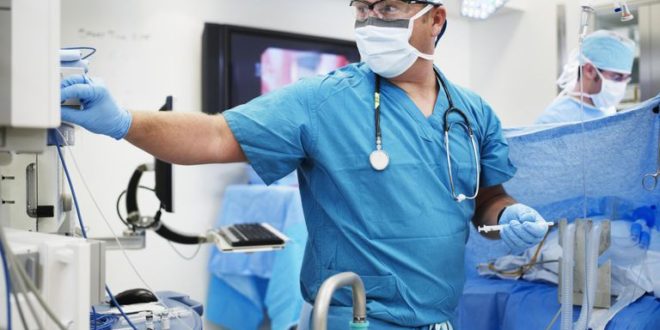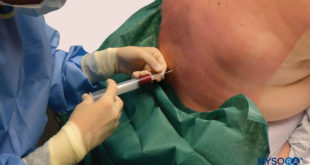Recently, the second most common question posed to me by patients has been: Do you stay with me during the entire surgery? Fortunately, in our anesthesiology practice, I can say, “Yes! I am by your side for the entire surgery.”
Dr. Dave and I practice in an all-physician anesthesiology practice. This means that as anesthesiologists, we take care of you continuously from the time your medicines are begun in the pre-operative area until the time your care can be safely assumed by another healthcare provider at the conclusion of the anesthetic in the recovery room.
This can take many forms. Let’s visit one scenario: If you are having a knee replacement, this means I would visit with you the night before your surgery over the phone. The day of your surgery, I will evaluate your medical history, perform a focused physical exam, and further discuss the plan for anesthesia with you in the pre-operative area. Once all parties are ready to go, myself and the operating nurse will bring you back to the operating room. In many cases, I will start the anesthesia medicines on this trip back to the operating room. From this point, you are my number one focus until the surgery has been completed, you are awakened from the anesthesia, and a recovery room nurse can manage your care in the recovery room.
In other scenarios, we take care of patients who are already sedated and intubated in the ICU. In these cases, I will assume care of the patient from the ICU nurse and physician before transporting them to the operating room. I do not leave the side of the patient during the entire surgery. At the conclusion of the surgery, I will transport the patient back to the ICU. Many times, these patients will remain sedated and intubated in the ICU. After arriving in the ICU, the anesthesiologist will not leave the patients’ side until either the ICU nurse, the ICU physician, or both are ready to assume care of the patient.
These are just two scenarios. There are several other permutations. But the basic point is that we will stay with you from the preoperative area, through the procedure, and then into the recovery room at the conclusion of the surgery. This is our focus, our duty, and what we have been trained to do for our careers.
In other practices in our city, our state, and our country, there is another type of anesthesiology practice model. This is referred to as the “Anesthesia Care Team” model.
In this situation, anesthesiologists, nurse anesthetists, and anesthesiology assistants work to provide anesthesia care to patients. In this model, an anesthesiologist does not stay with one patient for the entire procedure. Rather, the anesthesiologist is supervising 2 to 4 nurse anesthetists that stay with those specific patients.
Because I do not currently practice in this type of model, I cannot comment more on the specifics of the anesthesia care provided in this way. Perhaps some healthcare members who are involved with an Anesthesia Care Team model can comment below for our audience.
I encourage you to ask your surgeon about what type of anesthesiology group he or she works with on a daily basis. If you have any concerns after this conversation, the anesthesiology group can be notified to visit with you prior to your procedure. And I always recommend that you ask to speak to your anesthesiologist prior to any planned anesthetic.
 Anesthesia Myths: Get the Facts, Lose the Fear | Your #1 Anesthesia Resource in Simple language
Anesthesia Myths: Get the Facts, Lose the Fear | Your #1 Anesthesia Resource in Simple language




